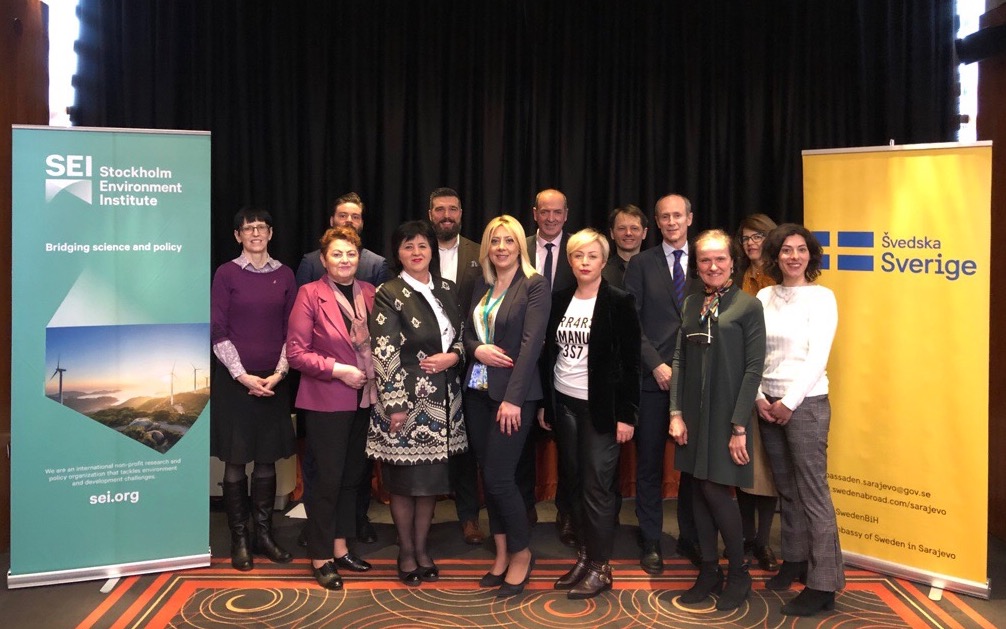On 3 March, the Steering Board for preparation of Bosnia and Herzegovina’s new environmental strategy and action plan for 2030 and beyond, ESAP 2030+, met in Sarajevo for the first time.

The meeting brought together ministers and other high-level representatives from the Ministry of Foreign Trade and Economic Relations of Bosnia and Herzegovina (BiH), the Federation of Bosnia and Herzegovina, Republika Srpska and Brčko District, as well as, the Embassy of Sweden to BiH, and the EU Delegation in BiH, who together constitute the Steering Board.
The meeting presented and agreed on the project’s aims and activities, along with plans for the coming six months, including the key milestones and meetings. The participants also discussed the strategic goals of ESAP 2030+:
- protecting water quality and ensuring access to, and sustainable management of, water resources
- ensuring sustainable use of natural resources
- reducing waste and increasing reuse of materials
- maintaining and enhancing biodiversity and protecting ecosystems
- mitigating and adapting to climate change and improving air quality
- safeguarding human health and improving well-being and quality of life for all
- strengthening environmental governance.
“We are very happy to see this materializing and that implementation has begun. This strategy brings everyone in BiH together under the umbrella of environment. Sweden appreciates that there is commitment from all levels of government. We believe that high-level participation in the process will generate good results benefitting the environment and the people of BiH. Also, it will make important contributions to the EU accession process, as well as the BiH’s commitment to fulfil Agenda 2030.”
— Torgny Svenungsson, Counsellor and Deputy Head of Mission, Embassy of Sweden to Bosnia and Herzegovina
About the project
BiH ESAP 2030+ will comprise the BiH Environmental Strategy and Action Plan, and coherent environmental strategies and action plans for the Federation of Bosnia and Herzegovina, Republika Srpska and Brčko District. The project aims to:
build on existing and past strategic environmental documents to strengthen current environmental governance at national level, in the two entities Federation of Bosnia and Herzegovina and Republika Srpska, and in Brčko District contribute to Bosnia and Herzegovina’s European Union approximation process, by aligning its environmental strategy with EU environmental acquis
provide a roadmap for future measures and investments in the environmental sector, and mechanisms for their implementation up to and beyond 2030.
During the two-and-a-half-year project, SEI will collaborate with authorities at national and entity levels and in Brčko District.
According to a UN Environmental Performance Review of Bosnia and Herzegovina, progress has been made over the last decade in addressing environmental issues. Major environmental challenges still facing Bosnia and Herzegovina include air pollution; waste management and wastewater treatment; deforestation; the impact of hydropower on water resources and biodiversity; and a need for more protected areas.
The work is financially supported by the Swedish Embassy to Bosnia and Herzegovina and the Swedish International Development Cooperation Agency (Sida).






